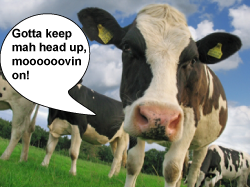A belated Happy New Year to all! After a wonderful 5 day weekend, in which there was much drinking and debauchery, I am back to work and back to blogging, and can’t wait to start a whole new year of law, politics, and journalism!
So without further ado, welcome to Teh Commerz Clawz: National Labor Relations Board v. Jones & Laughlin Steel Company, which fittingly marks the turning point in the history of Commerz Clawz interpretation, and begins the start of the Major Expansion Era of the Teh Commerz Clawz.

(How I imagine most ppl feel about law.) It gets moar interestin soon, I promiz!
So if you remember from last time, we’ve established some precedent for what commerce is prior to 1937:
1. Commerce is only goods moving in interstate commerce. There is a stream of commerce (Swift) with both a beginning (Schechter) and an end (Carter.) If goods have not yet started shipping or have reached their final destination, the federal government can’t touch them. This also applies to rules that attempt to set minimum wage or other requirements based on the Commerz Clawz.
2. There are things that have direct and indirect effects on commerz. Things like manufacshuring and wages only have an “indirect” effect on commerce, and so can’t be regulated. Things like stockyards, even though nothing is directly sold there, are so much a part of the streem of commerz that they fall under govt control.
3. Manufacshuring is not commerz. It comes before commerz, and leads to it, but is not a part of it (E.C. Knight.)
Now I know that’s all realllly boring, but to understand why Jones & Laughlin is so full of impoartant, you have to remember what came first. Also, remember that the last two cases were trying to regulate economic evils that led to the Great Depression. Roosevelt (FDR, not Theodore) kept trying to pass laws for things like minimum wage and health codes, and failing.
At this point, teh Supreme Court had set themselves up as a kind of super-majority. If things didn’t go along with their laissez-faire philosophy, they’d shoot the law down quicker than you can say “bread line.” Which was fine with big business, not so fine with starving people who wanted living wages and food.

See? No onez happie.
After a couple years of this, FDR was really, really mad. He just couldn’t seem to beat Teh 4 Horsemen, who could usually find one justice willing to join them for a majority. So he came up with an idea. Instead of waiting for the Court to come around, he was going to add moar juztices instead. Tons moar juztices.
The general idea was that any juztice over the age of 70 would lead to a new seat on the Court, up to six new seats at any given time. At that point, 6 of the justices were over 70 years old, including all of teh 4 Horsemen. Though Roosevelt said he was trying to create less work for an overstaffed judiciary, everyone knew better. FDR merely wanted enough ppl supportive of Teh New Deal on the Court that they’d quit overturning all his laws. No one was very happy about it. Matter of fact, it was a big enough deal to be the subject of the first fireside chat of Roosevelt’s second term.
Congress and FDR fought about this for a while, 6 whole months in fact, and then suddenly, Juztice Owen Roberts switched sides. It’s called “the switch in time that saved nine.”
So remember all those things we just talked about? About how manufacshuring and commerz aren’t teh same? How manufacshuring and wages only count as having an indirect effect?
Enter National Labor Relations Board v. Jones & Laughlin Steel Corporation.
FDR set up the NLRB in to help workers get bettah wages, primarily in the form of being able to “collectively bargain,” or rather, the right to not be kicked out of your job for joining a union.
NLRB: Strikes affect commerz. If workrs get mad at companys and no work happenz, then that “restricts the free flow of commerce.” Iz bad, and we can regulate it. U must b good to workrs nao. We haz precedent. (Not discussed here, but the case is Stafford v. Wallace, which is also states the stream of commerce doctrine.)
Jones & Laughlin, one of the biggest steel companies in the country, was sued for discriminating against union workers, and, as usual, instead of just treating their workers better, Jones & Laughlin complained about it.
J&L: No! Manufacshuring iz not commerz, and wages and labor relations izn’t either. U said so alredy. Duh. Screw off, FDR.
All the lower courts agreed with J&L. Obviously, this had already been settled before. But when the NLRB appealed to the Supreme Court, something funny happened. Union Kitteh shall explain:

Da Ali iz 2 lazee to design her own lolcatz today. Thanks icanhazcheezburger.com!
“So, suddenly, dings changed. Straight up, yo. Teh Court didn’t agree wit teh big business no moar. Instead, teh majority turned all teh way around and agreed wit FDR’s stuffs. All of a sudden, FDR and Congrez gets 2 say what commerz iz, not the Court.
“Chief Juztice Hughes used teh bill written by Congrez, which said that “commerce means trade, traffic, commerce, transportation or communication among the several states…or between points in the same state…” and that dings that affect commerz can includez “tending to lead to a labor dispute burdening or obstructing commerce or the free flow of commerce.”
“Normally, dat would no be right. But the court agreed with that definishun! Hughes then reminded ppl that teh right to organize iz an essential right, and that teh govt haz teh right 2 safeguard it. Iz not interfering in statez rights.
“Third, teh Court saiz that manufacshuring iz nao so cloze to commerz that the 2 can be regulated together. “Although activities may be interstate in character when separately considered, if they have such a close and substantial relation to interstate commerce that their control is essential or appropriate to protect that commerce from burdens or obstructions, Congress cannot be denied that power….”
“Last, obviously, if steel work stopped, that would haz a ginormous impact on teh economy and on teh commerz, and becuz of that, unions are part of commerz and can b regulated. Iz not teh same as E.C. Knight.”
So, in case you hadn’t noticed, a few things changed here. (The 4 Horsemen noticed too. Their dissent can basically be summed up in two words, “Dudes, WTF?”) Suddenly Congress can regulate manufacturing, and wages. The stream of commerce idea is practically done. So now what happens?
Well, a couple different things. In our next case, Wickard v. Filburn, we find the lowest lows of the court’s wishy-washy nature. Then, things go back to normal a little more in the New Federalism Era, which started somewhere around Rehnquist (70s or 80s). Only 4 more cases! We’re almost there!



















